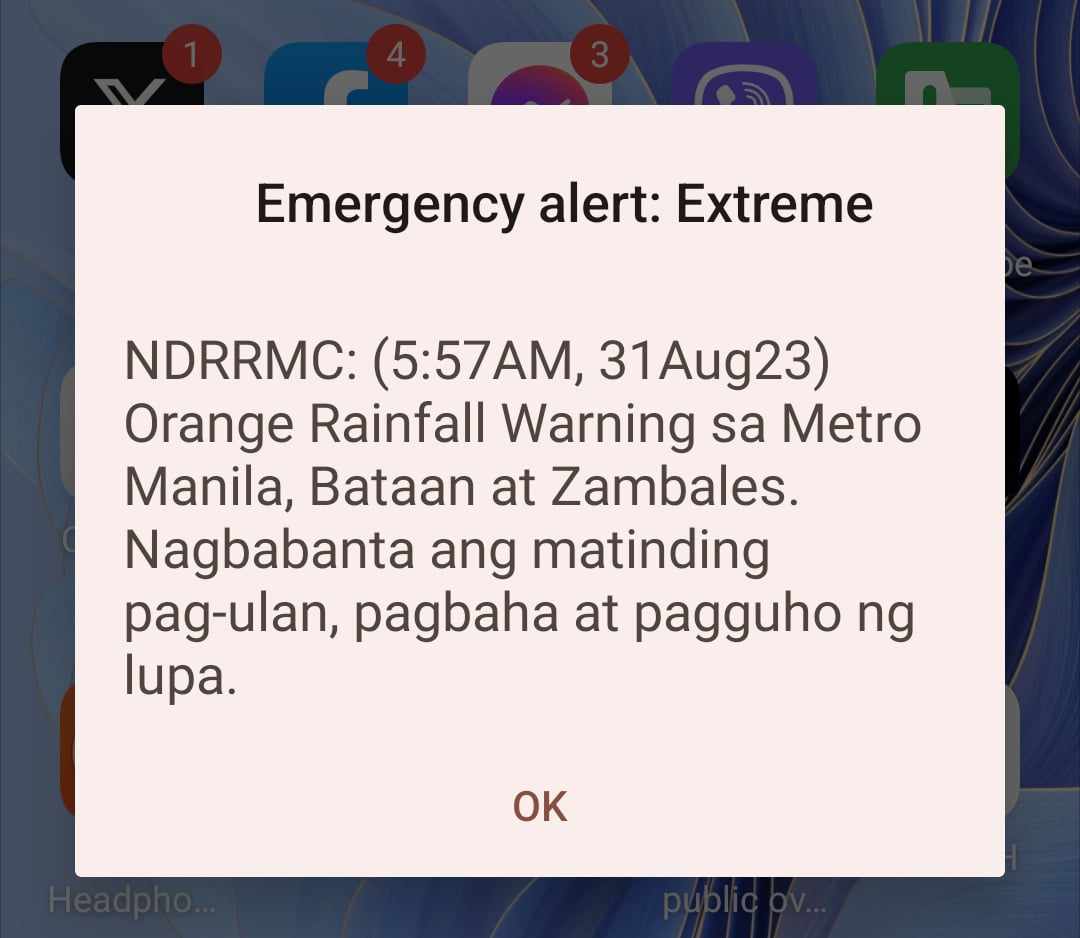Why you shouldn't turn off emergency cell broadcast alerts on your phone
A life-saving feature in the age of natural disasters
At A Glance
- <strong>Compliance with Philippine Law</strong>: The ECBS was enacted in the Philippines in accordance with the Free Mobile Disaster Alerts Act of 2014. This mandates telecommunications companies and the National Disaster Risk Reduction and Management Council (NDRRMC) to provide free mobile disaster alerts to the public.
- <strong>Multi-Agency Coordination</strong>: In the Philippines, the ECBS service draws from information supplied by various state agencies, including the Philippine Atmospheric, Geophysical and Astronomical Services Administration (PAGASA) and the Philippine Institute of Volcanology and Seismology (PhiVolcs). This collaborative approach ensures comprehensive and accurate data for emergency alerts.
- <strong>Initial Deployment and Improvements</strong>: Launched in 2017, the ECBS was spearheaded by the NDRRMC and PLDT wireless subsidiary Smart Communications. While there were initial challenges, evidence suggests that many of these have been resolved, although some complaints about late warnings still exist on social media.
- <strong>High Frequency of Natural Disasters</strong>: The Philippines is often affected by natural calamities like typhoons, earthquakes, and floods. Hence, systems like the ECBS are crucial for public safety and preparedness in the country.
- <strong>Strong Recommendation to Keep Enabled</strong>: I highly recommend that people keep the ECBS feature enabled on their phones. The ECBS bypasses regular volume settings, making sure that alerts are not missed even if the phone is in silent mode, which is particularly important in a disaster-prone country like the Philippines.
In an era where mobile phones have become indispensable, the Emergency Cell Broadcast System (ECBS) is a vital tool for public safety, particularly during natural disasters such as typhoons, earthquakes, and floods. Though some may find the warning sounds intrusive, I urge the readers not to turn off this feature, as it could be life-saving.
The ECBS is based on Cell Broadcast Service (CBS), a type of notification that appears instantly on your phone screen without user interaction. Depending on your phone's settings, it may also vibrate or emit a loud, distinctive sound specifically designed for emergency broadcasts.
According to a World Bank report titled "Natural Hazards, UnNatural Disasters: The Economics of Effective Prevention," early warning systems are among the three key sectors that can significantly mitigate the impacts of disasters. These systems allow people to evacuate or safeguard their properties and provide crucial data for government agencies to pre-position resources effectively.
The CBS technology plays a significant role in early warning, acting as an efficient Public Warning System (PWS).
The GSM Association (GSMA), a global organization representing mobile network operators, highlights several unique features that make CBS ideal for PWS:
- Message Display: CBS messages appear automatically on phones with a distinct warning tone and can even be delivered in multiple languages.
- Message Delivery: CBS operates on a one-to-many basis, enabling the rapid dissemination of messages to millions of devices within a designated area.
- Message Security: Unlike SMS, which any source can send, CBS messages are only sent by authorized personnel, adding an extra layer of security.
In the Philippines, the ECBS was enacted in compliance with the Free Mobile Disaster Alerts Act of 2014, mandating telecommunications companies and the National Disaster Risk Reduction and Management Council (NDRRMC) to provide free mobile disaster alerts. These alerts draw from information from various state agencies, including the Philippine Atmospheric, Geophysical and Astronomical Services Administration (PAGASA) and the Philippine Institute of Volcanology and Seismology (PhiVolcs).

First launched in 2017, spearheaded by the National Disaster Risk Reduction and Management Council (NDRRMC) and PLDT/Smart Communications, the ECBS aims to enhance public awareness and preparedness as natural calamities frequently affect the country.
Though there have been initial challenges in the system's deployment, evidence shows that many of these have been resolved based on my timely receipt of alerts. While this has been my experience, there are still complaints on social media about late warnings.
As emergencies can happen at any time, the ECBS bypasses regular volume settings, ensuring that you won't miss an alert even if your phone is in silent mode.
For those who still wish to turn off the feature, it can be toggled off in the phone settings under "emergency alerts." However, given the potential life-saving benefits of ECBS, keeping it enabled is highly recommended.